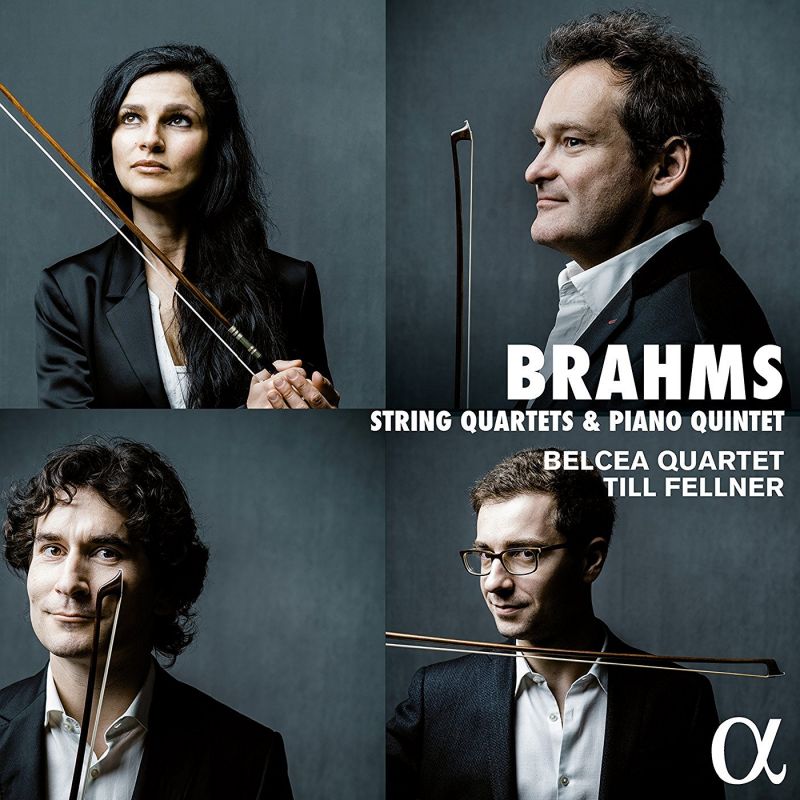BRAHMS 3 String Quartets. Piano Quintet
View record and artist detailsRecord and Artist Details
Composer or Director: Johannes Brahms
Genre:
Chamber
Label: Alpha
Magazine Review Date: 10/2016
Media Format: CD or Download
Media Runtime: 150
Mastering:
DDD
Catalogue Number: ALPHA248

Tracks:
| Composition | Artist Credit |
|---|---|
| String Quartet No. 1 |
Johannes Brahms, Composer
Belcea Quartet Johannes Brahms, Composer |
| String Quartet No. 2 |
Johannes Brahms, Composer
Belcea Quartet Johannes Brahms, Composer |
| String Quartet No. 3 |
Johannes Brahms, Composer
Belcea Quartet Johannes Brahms, Composer |
| Quintet for Piano and Strings |
Johannes Brahms, Composer
Belcea Quartet Johannes Brahms, Composer Till Fellner, Piano |
Author: Andrew Farach-Colton
In some respects, the Belcea’s interpretation of Op 51 No 2 is more impressive still, carefully balancing rigour and spontaneity. Indeed, the musicians are often daringly free with tempo but to eloquent effect. Note the way they lean yearningly into the long notes of the first movement’s second theme, or to the passionate impulsivity of the Andante moderato. What a surprise, then, that the opening Vivace of Op 67 sounds so rhythmically and emotionally strait-laced; there’s none of the playful exuberance one hears in the Takács Quartet’s recording, for instance. Happily, the remaining movements find the Belcea back in form, and the final two movements are particularly engaging in their blend of sweetness and melancholy.
The Piano Quintet is, in many respects, exquisitely realised, with lovely chiaroscuro shadings and a rhythmic incisiveness that’s particularly effective in the Scherzo and finale. Indeed, the Scherzo is almost terrifying in its relentlessness, the dotted rhythms hammered out like morse code. Till Fellner and the quartet take considerable care over voicing, so that even thick textures have clarity. And, in the finale, they are among the few performers who observe Brahms’s instruction that the minim of the Poco sostenuto introduction and the crotchet of the Allegro non troppo be in the same tempo.
What’s missing here is the kind of lyrical abandon one hears in the A minor Quartet. It’s scrupulously musical but lacks the impetuousity of Hough and the Takács, as well as – in the slow movement – the rapt tenderness of Eschenbach and the Amadeus (DG). Those caveats aside, this new set offers sufficient insight and delight to be worthy of any devoted Brahmsian’s attention.
Discover the world's largest classical music catalogue with Presto Music.

Gramophone Digital Club
- Digital Edition
- Digital Archive
- Reviews Database
- Full website access
From £8.75 / month
Subscribe
Gramophone Full Club
- Print Edition
- Digital Edition
- Digital Archive
- Reviews Database
- Full website access
From £11.00 / month
Subscribe
If you are a library, university or other organisation that would be interested in an institutional subscription to Gramophone please click here for further information.




